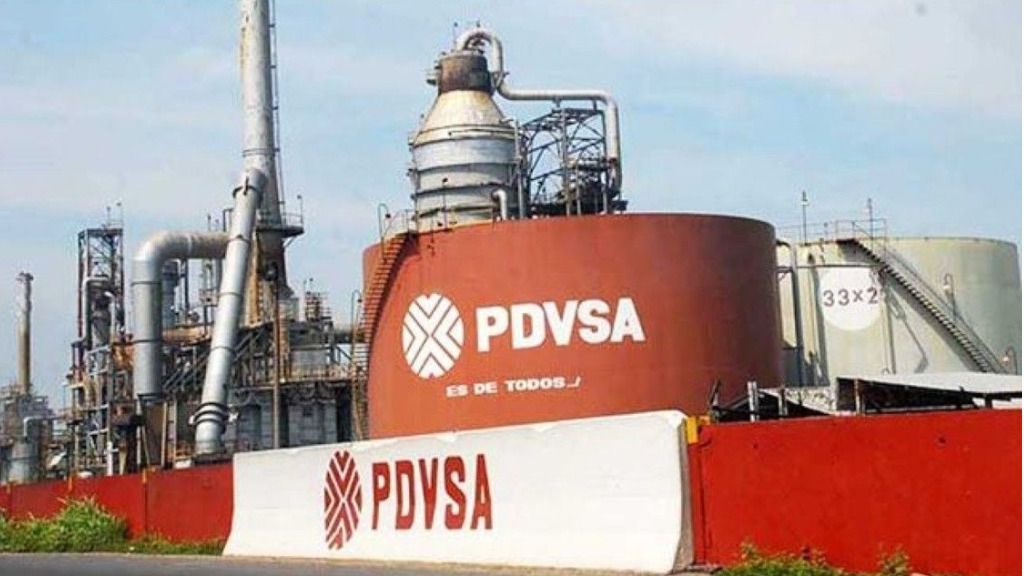By José Luis Granados Ceja for Venezuelanalysis.
Venezuelan state oil company PDVSA has signed at least three spot sales contracts and is in the midst of negotiating more supply deals following Washington’s temporary easing of sanctions on the country’s energy sector.
Since 2017, PDVSA has been under US sanctions, including an export embargo that has blocked the Venezuelan company from selling crude to international markets. On October 18, the US Treasury Department issued time-limited licenses allowing production, investment and sale in the Venezuelan oil and gas sectors.
The sanctions waivers followed the resumption of the dialogue process between the Nicolás Maduro government and the US-backed opposition on October 17, which concluded with the signing of an electoral accord.
Although the six-month exemptions will not significantly impact oil production, they have allowed PDVSA to secure spot sales and reactivate contracts to boost exports in the upcoming months. Currently, the South American country has a reported stock of 30 million barrels of crude and fuel ready to be shipped.
According to reports, the Venezuelan oil company has already signed deals with two United Arab Emirates-based firms. The first one was with shipping company Asia Charm LTD for the sale of 1 million barrels of fuel oil at US $41 per barrel to be exported in November.
The second sale was sealed with Dubai-based firm Tradeco International DMCC for 70,000 barrels of asphalt cement at $22.5 per barrel. The shipment is set to sail from the Amuay Port in Falcón state.
Singapore-based French commodity trading company Trafigura has likewise negotiated a chartering contract for the Bermuda-flagged Suezmax Stena Sunrise to transport 1 million barrels of Venezuelan fuel oil in November in a ship-to-ship transfer from the Amuay port.
As part of the deals, Venezuelan authorities reportedly demanded upfront payment to avoid issues of unpaid crude shipments. In March, PDVSA unveiled a corruption scheme that cost the company billions of dollars in diverted revenues from unreported oil sales and led to dozens of arrests.
Although unconfirmed, PDVSA is said to be in talks with several other international energy companies that have shown interest in reactivating supply contracts or drawing up new ones.
Geneva-based Mercuria Energy and Nigeria-based Sahara Energy are reportedly trying to secure spot purchases from PDVSA, while regular Venezuela partners from the US, Europe and Asia are looking to resume or expand crude imports. Among them are Reliance Industries, Maurel & Prom, Tipco Asphalt, Valero Energy and PBF Energy.
Additionally, longtime PDVSA partners Spain’s Repsol and Italy’s Eni are currently engaged in negotiations with the Venezuelan government to export liquefied natural gas to European markets. In May 2022, both companies received exemptions from the US Treasury Department to recoup accumulated debt and dividends from their joint ventures in the Caribbean country.
An Eni representative told the press that the temporary removal of sanctions against the Venezuelan oil and gas sectors will increase “the flexibility and effectiveness of debt collection activities.”
For its part, Chevron’s Chief Financial Officer Pierre Breber said that the sanctions relief does not impact the company. In November 2022, the California-based firm had already resumed operations in Venezuela after receiving a limited license from the US Treasury to reactivate production and exports from its joint ventures.
“We do not have a long-term license, and we would not make significant investments with a short-term license, in addition to other geopolitical uncertainties that exist,” he told Bloomberg.
The US corporation has been focused on repairing facilities and wells, with the stated goal of producing 150,000 barrels per day (bpd) by the end of this year and reaching its four joint ventures’ maximum production capacity of 200,000 bpd by the end of 2024. Venezuela’s current crude output stands at 733,000 barrels per day (bpd).
Valero, one of the major refiners in the US Gulf Coast, is likewise eyeing Venezuelan crude imports, with its CFO speculating that Venezuela could divert 250,000 bpd to US markets. The sanctions waiver opens the possibility of direct transactions, whereas presently PDVSA is forced to sell at steep discounts through intermediaries.
Another announcement that followed Washington’s lifting of some sanctions against the Caribbean country was Sweden’s Maha Energy purported plans to acquire a minority stake in PetroUrdaneta, a joint venture that operates three onshore fields in the Maracaibo basin in Zulia state.
PetroUrdaneta is operated by Novonor Latinvest, a subsidiary of Brazilian conglomerate Novonor (formerly Odebrecht), which holds a 40 percent stake in the enterprise, with PDVSA holding the remaining 60 percent of shares.
Oil Minister and PDVSA President Pedro Tellechea has yet to give a public statement or confirm the negotiations being carried out with global energy companies. He wrote on his X account that the temporary sanctions suspension was the result of the government’s strategy “to promote a global consensus against the illegality of criminal sanctions.”
The Venezuelan minister went on to inform of new oil and gas cooperation agreements with China, Russia, and Bolivia. On October 19, he met with the Chinese ambassador to Venezuela, Lan Hu, to “review details of oil cooperation between both countries.”
The Asian giant has been the main destination of Venezuelan crude in recent years. On Thursday, the Venezuelan state oil company announced a deal to sell 1 million barrels of oil to Petrochina International Corp Ltd. The agreement will be paid via China’s digital yuan.
Previously, the PDVSA president participated in the XVII Russia-Venezuela High-Level Intergovernmental Commission (CIAN) in Moscow to further cooperation in the petrochemical sector. One of the deals included sending Venezuelan youth to study in Russia.
On October 25, Tellechea likewise signed accords with Bolivia’s Oil Ministry and national oil company YPF “with the purpose of strengthening energy integration” and the development of joint oil and gas projects.
Edited by Ricardo Vaz in Caracas.

